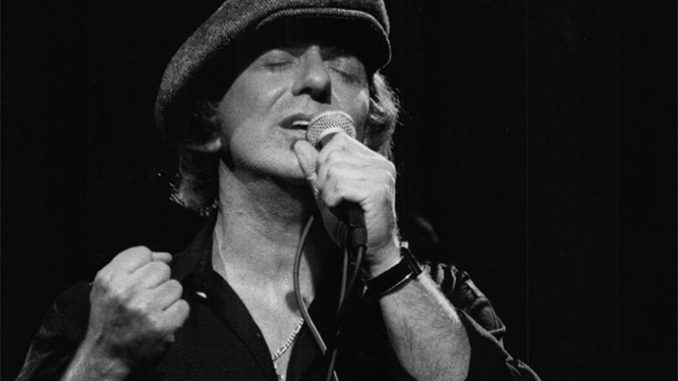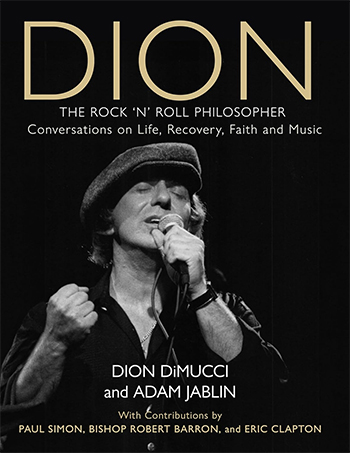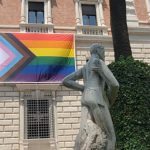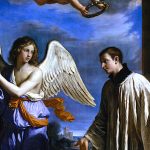
 In addition to his many achievements during seven decades in the music business, the singer, songwriter, and rocker Dion DiMucci can well be considered a survivor.
In addition to his many achievements during seven decades in the music business, the singer, songwriter, and rocker Dion DiMucci can well be considered a survivor.
The Bronx, New York native, who shot to fame in the late 1950s with such hits as “The Wanderer”, “Ruby,” and “Lonely Teenager”, is now 86 years old. But he’s not slowing down. He’s released several albums over the past decade, and three of them have been number 1 on the Blues chart.
What sets DiMucci apart from most other popular musicians of his generation is his near-radical return to his boyhood Catholic faith. This return led to his recovery from the addictions, materialism, ennui, and the sort of lassitude that plays havoc with many who find fame early in life.
DiMucci reflects on his faith-centered recovery, along with general observations on life and music in his new memoir Rock ‘N’ Roll Philosopher. Co-authored with friend and mentor Adam Jablin, the book offers key insights into the singer’s prophetic call for surrender, forgiveness, and redemption as necessary for true peace and detachment from earthly things.
DiMucci includes voices other than his own in developing the memoir. In addition to co-author Jabln, the book features introductory notes from fellow (and famous) performers Paul Simon and Eric Clapton.
Another noteworthy contributor is Bishop Robert Barron of Word on Fire Ministries and Bishop of the Winona-Rochester, Minnesota diocese.
Bishop Barron describes DiMucci as a man of enormous spiritual depth and insight, asking, “…how many people realize that Dion is a man of enormous spiritual depth and insight? How many know that he fought his way through a debilitating addiction and experienced the breakthrough of divine grace? How many understand that, even for many of his musical peers, he is a source of wisdom?”
In 1968, after having been out of the spotlight for some years, DiMucci scored a hit with Abraham, Martin and John, a lament about the political assassinations and civic strife of the 1960s. It was during this time that DiMucci made a life-changing bargain.
“In 1968, I did the unthinkable. I surrendered,” he writes. “I made the divine exchange. I gave God my brokenness in a swap for His divine life. I stepped into His world of beauty, goodness and truth.”
Although not a scholar or theologian, DiMucci became familiar with the writing of Thomas Aquinas, St. Augustine, and the Bible, particularly the Book of Proverbs.
The author discusses the “four horsemen” of atheism (Christopher Hitchens, Richard Dawkins, Sam Harris, and Daniel Dennett) whose efforts to rationalize non-belief are easily refuted by “brilliant men and thinkers” such as St. Thomas Aquinas, G. K. Chesterton, and C. S. Lewis.
He also outlines his gradual search for peace and fulfillment by letting go of the stifling expectations of fame and celebrity.
“The more I changed, the more I became myself. From that day forward, I found my significance outside the music industry,” he reflects. “I found my significance outside my looks and generation. I wasn’t an aging rock ‘n’ roller. I was a child of God, and he loved me forever.”
In the wake of his “divine exchange,” DiMucci experienced the freedom to take his career and family life in new directions. “I knew the true meaning of being free,” he said. “All I had to do was be right with Him, and great events would happen to me and countless others.”
Rock ‘N’ Roll Philosopher is accessible and lavishly illustrated. Much of the writing serves as tribute to DiMucci’s Bronx roots, and the influence of his home parish, Our Lady of Mount Carmel, which, as the author suggests, “is where it all started.”
In a heartfelt disclosure, DiMucci says the most courageous thing a man can do is open his heart to his Creator.
“We all have this longing in our heart, and we look in all the wrong places to fill that longing,” he writes. “Bruce Springsteen wrote, ‘Everybody’s got a hungry heart’. That song is echoing what St. Augustine said: The heart is restless until it comes to rest in God alone. But we look in all the wrong places to fill this emptiness.”
One minor knock against Rock ‘N’ Roll Philosopher is the decision to devote several pages to seemingly trivial things. For example, the author fills three pages with a listing of “servants”–from refrigerators to lawn sprinklers–in which he offers a curious paean to American technical superiority and leisure living. It might be DiMucci’s way of expressing gratitude for the simpler things in life, but in a book seemingly focused on faith and recovery, it seems a little out of place.
Nonetheless, this is a bright and enjoyable read, particularly for Catholic readers seeking tales of redemption and recovery. DiMucci provides a number of hard-won life lessons and offers a blueprint to prioritize the better things.
And, as a long-time recording artist and performer, DiMucci naturally turns cites creativity as an additional outlet for praise, thanksgiving, or simply posing some of life’s deeper questions.
“If you believe your art glorifies God, you’re going to keep doing it as long as you can still breathe,” he writes. “When I make music, I feel like I’m crazy King David dancing before the Ark of the Covenant, singing a new song just because I’m still newly in love, or belting out the blues as a psalm of lament. As long as I can still breathe, I hope to be newly in love with the God who made me. He always gives me something to sing about.”
Dion: The Rock ‘N’ Roll Philosopher: Conversations on Life, Recovery, Faith and Music
By Dion DiMucci and Adam Jablin
With contributions by Eric Clapton, Paul Simon, and Bishop Robert Barron
Lyons Press / Globe Pequot Publishing Group Inc., 2024
Hardcover, 211 pages
If you value the news and views Catholic World Report provides, please consider donating to support our efforts. Your contribution will help us continue to make CWR available to all readers worldwide for free, without a subscription. Thank you for your generosity!
Click here for more information on donating to CWR. Click here to sign up for our newsletter.











